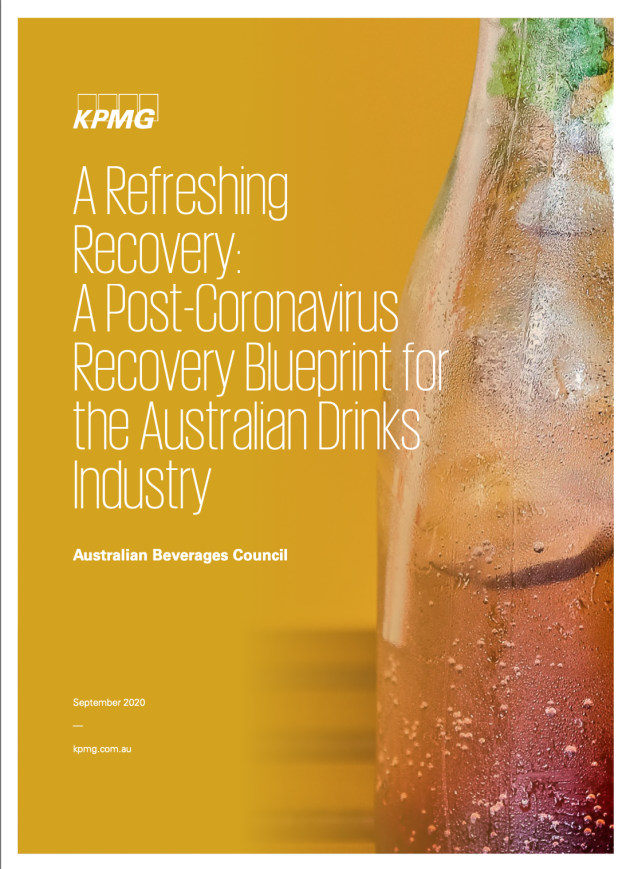Harmonising the Container Deposit Schemes (CDS) and incentivising to meet sustainability goals are some of the areas the Australian Beverages Council are focusing on for a post-COVID-19 recovery for the non-alcoholic drinks industry.
The Australian Beverages Council has compiled a report with KPMG Australia to identify nine key areas for positive change, to complement the Australian Government’s pro-growth and pro-jobs policies as ongoing challenges are faced amid the pandemic
It includes: harmonising nationwide CDS; incentivising key groups to meet sustainability goals; increasing recycling infrastructure; reforming the tax system; simplifying the industrial relations system; and improving energy policy.

Australian Beverages Council CEO Geoff Parker said the drinks industry supports the Australian Government’s focus on creating incentives and infrastructure at every step of the waste supply chain.
“As the drinks manufacturing and supply industry continues to adapt to the challenges caused by the coronavirus, the industry will continue to be focussed on more efficient use of resources through more sustainable practices and by minimising its environmental footprint,” said Parker.
“Where possible, steps should be taken to increase the efficiency of existing and planned infrastructure, including CDS that is found in, or planned, for every State and Territory.
“There is broad recognition by the industry of the government’s efforts to transition towards renewable energy, but there is also a need for increased incentives to adopt sustainable energy and co-generation schemes that focus on reliability and efficiency of energy supply as highlighted in the KPMG report.”
The report highlights the potential in extending the CDS to help foster job creation as well as contribute to “a more efficient and well-functioning national recycling industry in Australia”.
Assistant minister for waste reduction and environmental management Trevor Evans said the partnership between industry and the Morrison Government is a “clear sign” that collaborative solutions are available to support economic recovery while meeting sustainability objectives.
“This report is very welcome and timely, and more industries should be thinking about the many opportunities that exist,” said Evans.
Earlier this week, Prime Minister Scott Morrison announced the government was looking to boost gas energy in Australia, which is “part of the government’s plan to reduce emissions without imposing new costs on households, while at the same time creating jobs, growing businesses and the economy”.
The KPMG report states, “high and volatile energy costs have been a long-standing issue in Australia, particularly affecting the manufacturing sector,” and that “as new gas reserves open up in Queensland and Northern Territory, it is important to manage an efficient transmission of gas to other parts of the country. This can assist in bringing down gas prices for the industry”.
It further suggests the industry's recognition of the government's efforts to transition towards renewable energy, "but the industry sees a need to step up incentives for sustainable energy and co-generation schemes".
"While recognising efforts made towards entering the renewable energy space, it is far from catering to the industry’s energy needs in terms of volumes and reliability. Noting rising energy needs and limited sources, there are calls for greater government support and incentives for developing the required infrastructure for lower cost sustainable energy," it states.
The full report can be accessed here.





